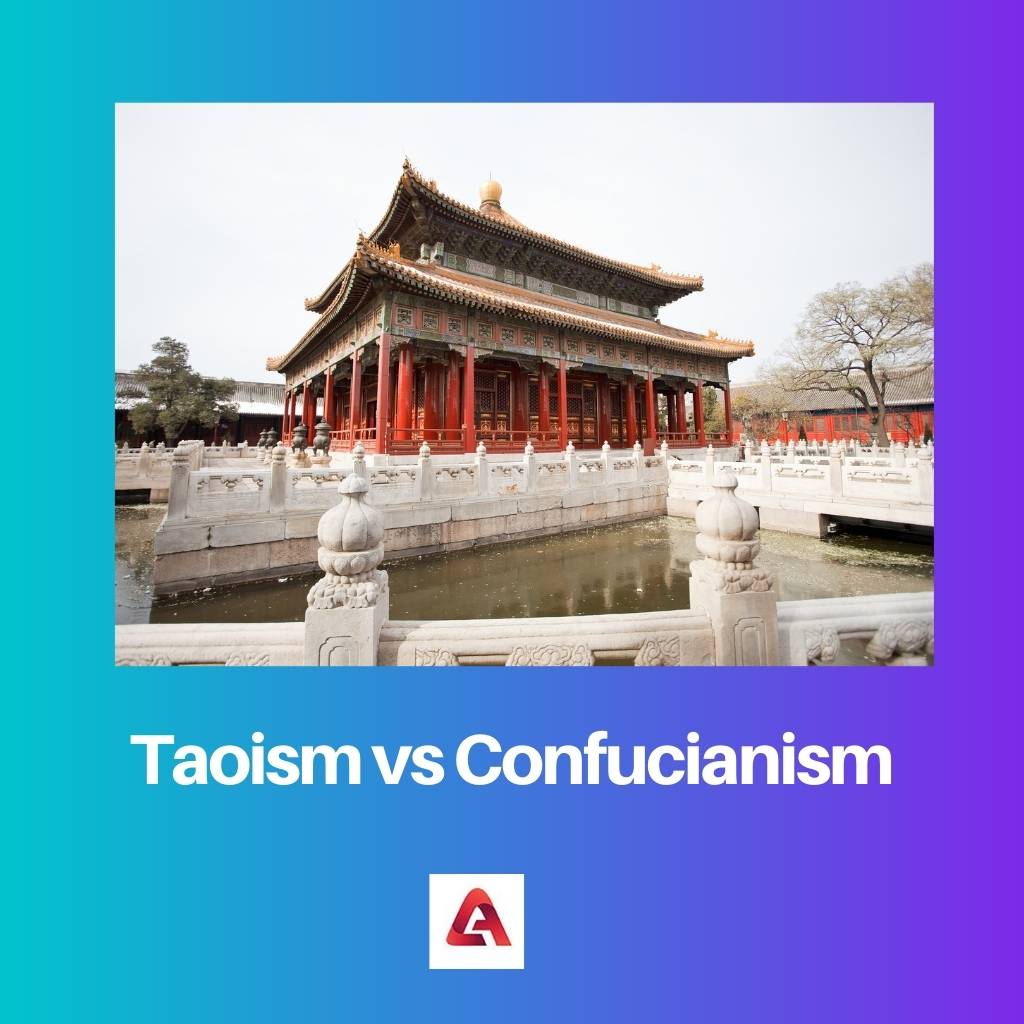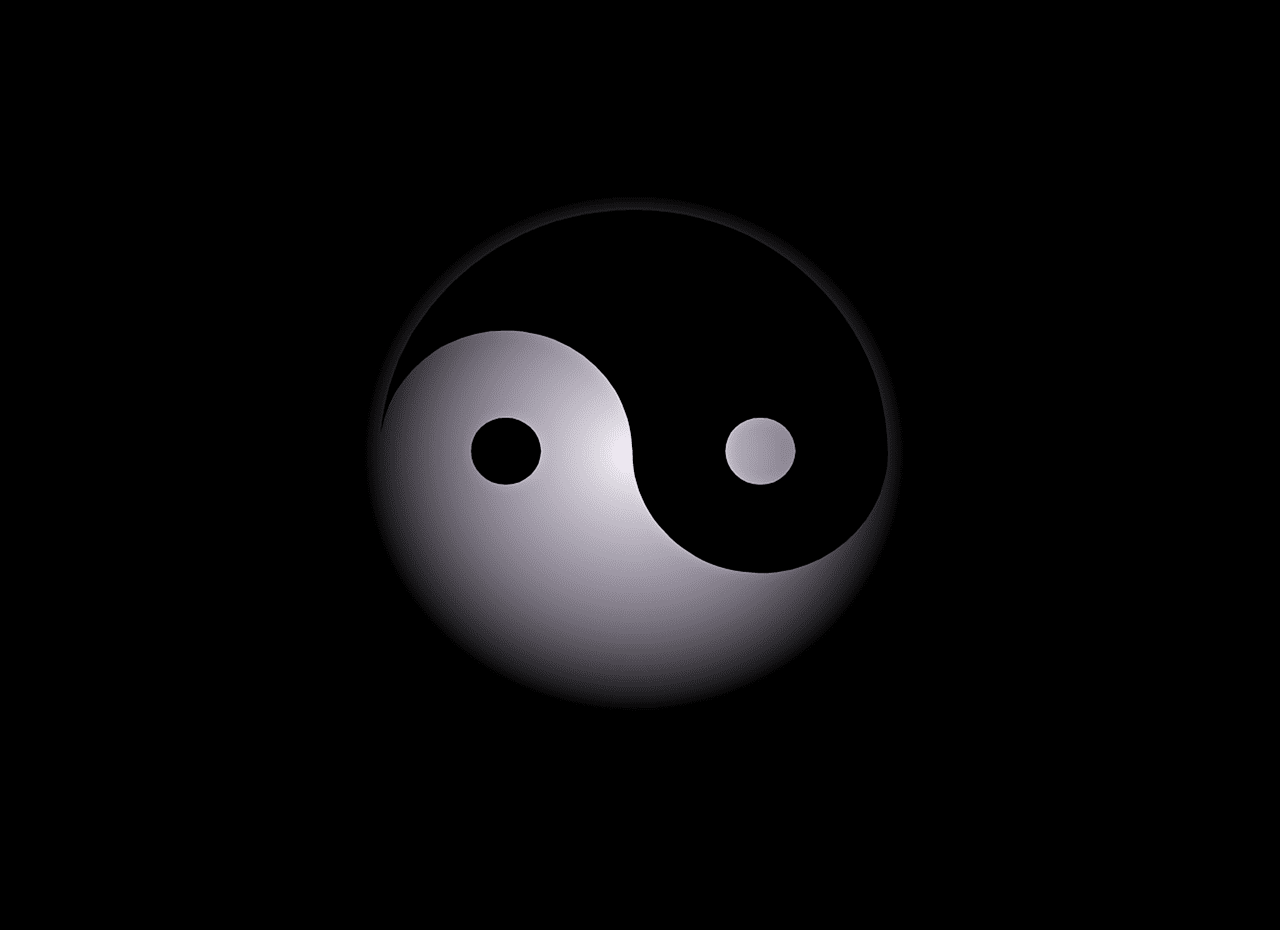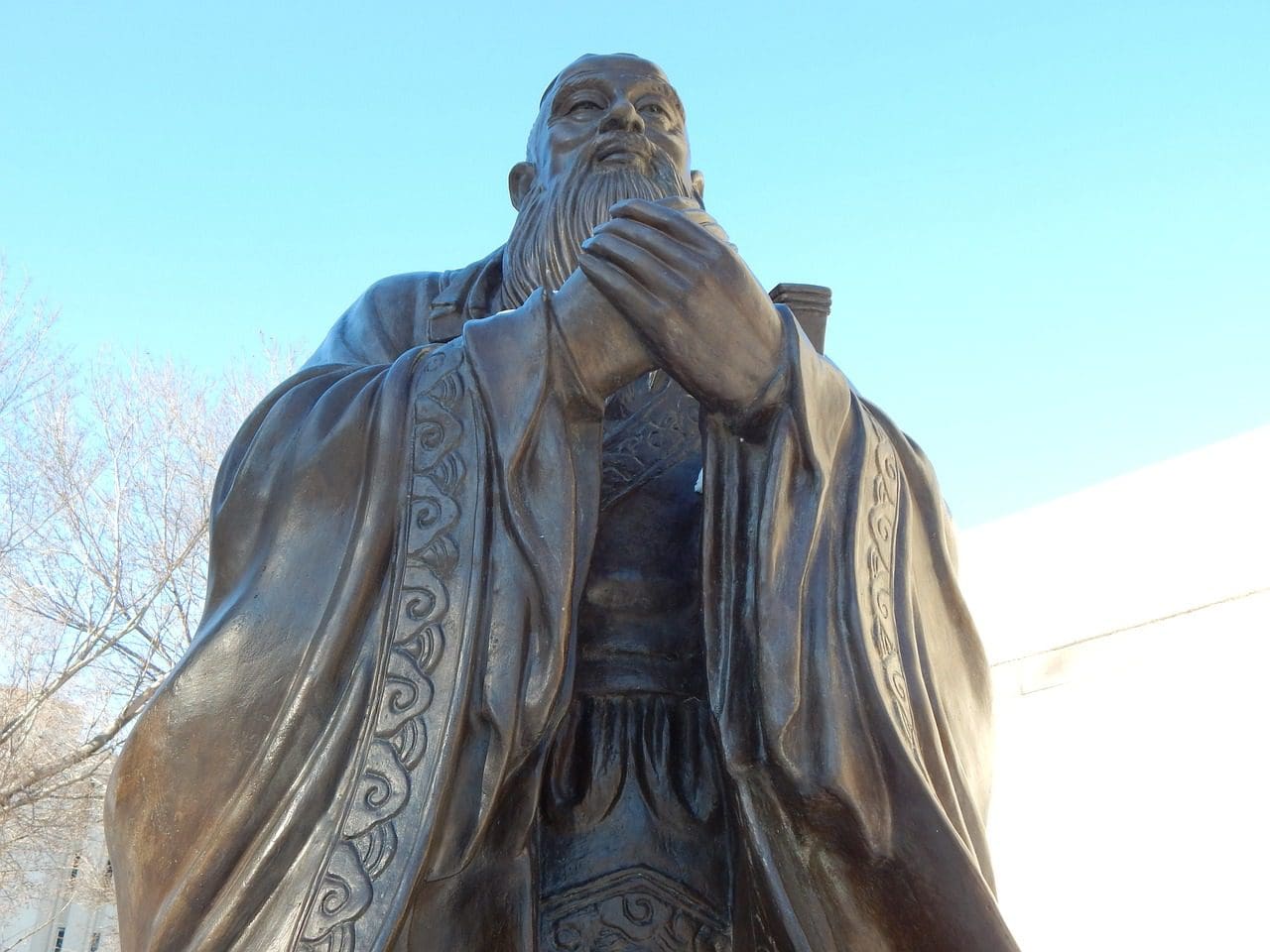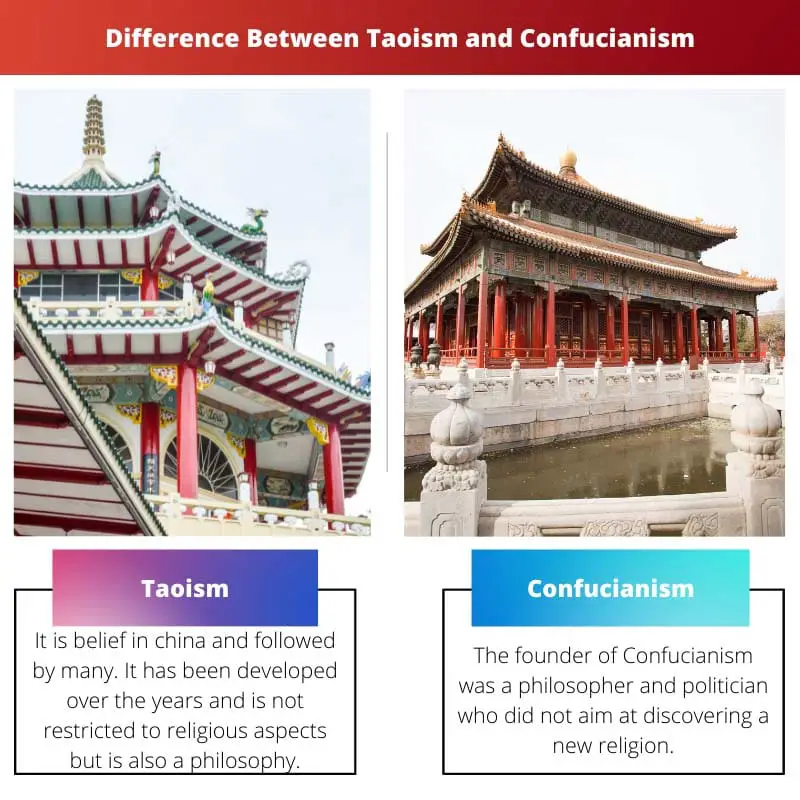People all over the world have different beliefs and religions. It is due to geographical and historical differences or any other factor. They have their separate way of living, which defines them.
The most populated countries are India, China, and the United States, where countries have several religious beliefs. In this article, we have discussed one of these. China is the highest population and has two major religious beliefs, i.e., Taoism and Confucianism.
While the Chinese are very much familiar with these terms, not many around the world know what it is. Therefore, to better understand it, we should know the difference between them.
Key Takeaways
- Taoism emphasizes living in harmony with nature and the Tao, while Confucianism emphasizes social harmony and proper behavior.
- Taoism emphasizes the individual’s path to enlightenment, while Confucianism emphasizes education and morality to achieve a harmonious society.
- Taoism emphasizes simplicity and naturalness, while Confucianism emphasizes etiquette and ritual.
Taoism vs Confucianism
The difference between Taoism and Confucianism is that both of them were founded by different people. They both have different natures, Polytheistic nature and Monotheistic nature, respectively. Not only this, but they also differ in terms of women’s positions, relation with humans, their religion and ultimate goals, original language, and modes of passing down the teachings. While Taoism was mainly focused on the universe and nature, Confucianism was focused on society and harmony.

Taoism is a religious belief of Chinese people which was founded in China by Lao Tzu and literally means the follower of ‘the way’ or Tao. It focuses on human relations with the universe and aims at maintaining balance in life.
Under Taoism, women were given a good status as men. The writings depicting the teaching were written in the old Chinese language.
Confucianism is also a religious belief of China founded by King Qui and means the followers of Confucius. It focuses on human relationships with society and aims at the structured development of society.
The teaching passed on was written as dialogues in Mandarin or Cantonese languages. Women were not given equal status as men under this belief. Status and pictures were permitted under this.
Comparison Table
| Parameters of Comparison | Taoism | Confucianism |
|---|---|---|
| Founder | Lao Tzu | King Qiu (Confucius) |
| Definition | Followers of Tao | Followers of Confucius |
| Nature | Polytheistic in nature | Monotheistic in nature |
| Goal | Gain balance in life | Gain social harmony |
| Relation | Relation between human and universe | Human and society relation |
What is Taoism?
It is a belief in China and is followed by many. It has been developed over the years and is not restricted to religious aspects but is also a philosophy.
It is based on the teaching of human and natural relationships and defines the true nature of the world. It focuses on the universe and living in harmony.
The Communist takeover in 1949 led to a decline in Taoism followers as it was banned at that time. But later on, people started following Taoism again after having freedom of religion.
Nowadays, their temples can be founded easily. It mainly aims at escaping reincarnation and being the almighty God at last. It focuses on the following.
- Genuineness
- Longevity
- Health
- Immortality
- Transformation, refinement, etc.
The four main teachings of Taoism are:
- Simplicity, patience, and compassion: this is very simple to understand, as being patient and compassionate along with simplicity is the ultimate goal of being balanced.
- Going with the flow: this means we should not fight with everything in our life but instead allow them to take their natural course.
- Letting go: it means we should accept reality and let go of things.
- Harmony: it means that to live, the balance of nature must be maintained. For example, being rigid will only make the person vulnerable to pressure. Instead, he should be flexible and restore the balance.

What is Confucianism?
The founder of Confucianism was a philosopher and politician who did not aim at discovering a new religion but just wanted to make existing ones more structured, which ultimately contributed to forming the Chinese character and their way of living.
Its main goal was to develop and reforms society and human relations by educating people on the need for self-motivation and self-control.
Its main belief was harmony and trustworthiness. While in the world, it is defined as a religion but for Chinese, it is more of a way of living life rather than a religion, and it focuses on education on the following:
- Archery
- Calligraphy
- Computation
- Music
- Chariot driving
- Ritual
And as mentioned above, for the Chinese, it is not a religion. Therefore, they are no Confucianism god. It is just a socio-philosophical movement that aims at the betterment of society.
The four tenets of Confucianism are the following:
- Rites and rituals: it teaches the importance of rites and rituals in uniting the people.
- The five relations: according to this, a strict hierarchy is a must for peace and harmony in every relation, and by five relations it means the relationship between the ruler and his subject, parents with the child, husband and wife, older brother and younger brother, and the friend to the friend.
- Rectification of names: this teaches that the root of chaos is the confusion of positions in society. Everyone should know their place/position in the family.
- Ren: it means virtue or kindness

Main Differences Taoism and Confucianism
- Despite being founded during the same era, both Taoism and Confucianism were founded by different people, Lao Tzu founded Taoism, and King Qui was the founder of Confucianism.
- Taoism is defined as the followers of Tao, which means ‘the way,’ while Confucianism is defined as the follower of Confucius.
- They are also different in nature; Taoism has Polytheistic nature, whereas Confucianism has monotheistic nature.
- The ultimate goal of Taoism is the gain balance in life, while Confucianism focuses on the goal of gaining social harmony.
- Taoism defines the relationship between humans and the universe, whereas Confucianism defines the relationship of humans with society.
- They both have different means of passing the teaching; Taoism uses direct writing, while Confucianism uses dialogues for the purpose.
- The goal of religion also differs. Taoism goals to be one with nature and life, while Confucianism aims at a structured society.
- Under Taoism, women and men were treated. Equally, there was no distinction between them, while Confucianism treated women as beneath men or it was socially inferior to men.
- The original language of Taoism is old Chinese, whereas Mandarin or Cantonese is the original language of Confucianism.

- https://muse.jhu.edu/article/16670/summary
- https://philpapers.org/rec/BOLNIH
- https://www.oxfordhandbooks.com/view/10.1093/oxfordhb/9780199653881.001.0001/oxfordhb-9780199653881-e-003
- https://www.jstor.org/stable/596285
- https://www.cambridge.org/core/journals/journal-of-asian-studies/article/taoism/CE0B7FBAF7CF83810A4FE0C29539F1AC
- https://onlinelibrary.wiley.com/doi/abs/10.1111/1467-9647.00020

The concept of Confucianism as a way of living life is eye-opening, I didn’t realize it was more than just a religion.
I appreciate the breakdown of the teaching and goals of Taoism, it’s a very comprehensive overview.
The explanation of Confucianism as a socio-philosophical movement also adds to the depth of the article’s content.
The four main teachings of Taoism are quite intriguing, especially the emphasis on harmony.
I found the focus on self-motivation and self-control in Confucianism to be quite thought-provoking.
The explanation of the main beliefs and goals of Taoism really painted a clear picture of its principles.
The emphasis on simplicity, patience, and compassion under Taoism is truly admirable.
The mention of Chinese characters and way of living in relation to Confucianism was enlightening.
The concept of Taoism is truly fascinating, especially its focus on simplicity and naturalness.
The explanation of Confucianism’s focus on society and harmony really enlightened me.
The historical context provided in the article about the Communist takeover and its effect on Taoism followers was really interesting.
The Taoism and Confucianism comparison is very on point. I really enjoyed learning more about these religions.
I couldn’t agree more, this article was very informative and well explained.
I’m glad I read this article, I had no knowledge of these religions and now I feel more informed.
The comparison table of Taoism and Confucianism is an excellent way to understand their differences.
Both Taoism and Confucianism offer such rich and deep philosophical teachings, it’s fascinating to learn about.